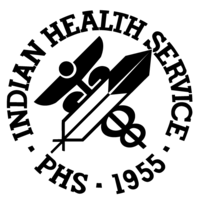Physician Job Search: Opportunity Details
Opportunity Criteria
Now Interviewing
This position is located at one of the various Indian Health Service Hospitals or Clinics under the Navajo Area Office. The primary purpose of the position is to serve as a technical expert within the specialty area of General Surgery; the incumbent assumes responsibility for the diagnosis, care and treatment of patients.
Duties
- Interviews and examines patients, reviews past medical history, and requests and/or performs diagnostic tests and examinations deemed necessary to obtain all appropriate information related to each case.
- Makes preliminary diagnoses, directs, prescribes or provides treatment, or arranges for specialized care in the field of General Surgery or patient referral as required.
- Provides urgent and emergency care as required.
- Refers patients to appropriate contract medical or other government facilities.
- Responds to acute emergency interventions, working closely in consultation with members of other medical departments.
- Serves as an expert in the specialized area and assumes appropriate administrative duties as assigned by the supervisor.
BASIC REQUIREMENT(S):
Degree: Doctor of Medicine, Doctor of Osteopathic Medicine or equivalent from a school in the United States or Canada. This degree must have been accredited by the Council on Medical Education of the American Medical Association; Association of American Medical Colleges; Liaison Committee on Medical Education; Commission on Osteopathic College Accreditation of the American Osteopathic Association, or an accrediting body recognized by the U.S. Department of Education at the time the degree was obtained.
Licensure: For all grade levels and positions, applicants must possess a current, active, full, and unrestricted license or registration as a Physician from a State, the District of Columbia, the Commonwealth of Puerto Rico, or a territory of the United States.
Graduate Training: Subsequent to obtaining a Doctor of Medicine or Doctor of Osteopathic Medicine degree, a candidate must have had at least 1 year of supervised experience providing direct service in a clinical setting, i.e., a 1-year internship or the first year of a residency program in a hospital or an institution accredited for such training. For purposes of this standard, graduate training programs include only those internship, residency, and fellowship programs that are approved by accrediting bodies recognized within the United States or Canada. Descriptions of such programs are described below.
An internship program involves broadly based clinical practice in which physicians acquire experience in treating a variety of medical problems under supervision (e.g., internal medicine, surgery, general practice, obstetrics-gynecology, and pediatrics). Such programs are in hospitals or other institutions accredited for internship training by a recognized body of the Accreditation Council for Graduate Medical Education (ACGME).
A residency program involves training in a specialized field of medicine in a hospital or an institution accredited for training in the specialty by a recognized body of the American Medical Association, (AMA) or Accreditation Council for Graduate Medical Education (ACGME).
A fellowship program involves advanced training (beyond residency training) in a given medical specialty in either a clinical or research setting in a hospital or an institution accredited in the United States for such training.
Additional Requirements for Grades GS-12 and Above
GS-15: 5 years of graduate training in medical specialty of the position or equivalent experience and training within the specialty area of General Surgery. (e.g., a senior specialist with several years of experience beyond residency training) that demonstrates the ability to provide patient care of an extremely difficult and responsible level.
- Board Certification, not required but preferred
About Us
The Navajo Area Indian Health Service (NAIHS) is one of 12 regional administrative units of the Indian Health Service (IHS), in the US Department of Health and Human Services. The NAIHS delivers health services to a user population of over 244,000 American Indians in five Federal service units on and near the Navajo Nation. The Navajo Nation is one of the largest Indian reservations in the United States. The Navajo Nation consists of more than 25,000 contiguous square miles and three satellite communities, and extends into portions of the states of Arizona, New Mexico, and Utah. NAIHS primarily delivers health services to members of the Navajo Nation and the San Juan Southern Paiute Tribe, and also provides services to other Native Americans, including Zunis, Hopis, and other American Indian beneficiaries. The five (5) Federal Service Units (SUs) include Chinle, Crownpoint, Gallup, Kayenta, and Shiprock SUs.
NAIHS provides inpatient, emergency, outpatient, public health, and other services at four hospitals: Chinle Comprehensive Health Care Facility, Crownpoint Health Care Facility, Gallup Indian Medical Center, and Northern Navajo Medical Center (Shiprock, NM). These inpatient facilities comprise a total of 222 hospital beds. The Kayenta Health Center in Kayenta, AZ will transition to begin operating as an Alternative Rural Hospital in late 2017 by offering ten short stay nursing beds and ambulatory surgery. Navajo Area also has seven full-time health centers providing outpatient, community health, preventive health, and other services. There are also five part-time health stations.
In addition to the NAIHS, the Navajo health care system includes an urban health program in Flagstaff, Arizona, the Navajo Department of Health (NDOH), and five Tribal health care corporations. Native Americans for Community Action, Inc. (NACA), founded in 1971, is one of 34 Urban Indian health programs in the United States. NACA provides outpatient, behavioral health, health promotion, and other services to the population in and around Flagstaff, Arizona. The NDOH, created in 1977, ensures access to quality and culturally acceptable health care. The NDOH offers nutrition, aging, substance abuse, education, community health outreach, and other services to the Navajo population through regulation, direct service delivery, and coordination with federal, state, and local partners. NDOH has a master contract with NAIHS under the auspices of Public Law 93-638, the Indian Self Determination and Education Assistance Act.
Facility & Address
Indian Health Services - Navajo Area
- 272 Highway 264 Window Rock AZ 86515-9020
Links
Contact Information
IHS Recruitment
- Email:Click to email
Photos
Video
This site is only intended for job seekers to contact the organizations posting jobs. Use of this site for solicitation and other unintended purposes is prohibited.

